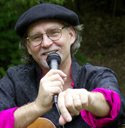I have a doctorate, two master’s degrees, and a wealth of education and certificates, but I was until recently, illiterate: Illiterate in Arabic. Though my native language is English, I had lived and worked in the Middle East, and learned Arabic mostly by ear. I could read enough for street signs, the basics of a menu, and enough to fake it, but I could not really read or write much beyond the most basic level. While that may be impressive to a Westerner, this reluctance or laziness to sit down and thoroughly learn the basics of writing and grammar prevented me from taking my Arabic to the next level. Easy simple mistakes were overlooked because any Westerner making even the most rudimentary attempts at speaking Arabic was considered laudable, but I was faking it. In part, I had been working in a hospital and community setting, I only had to speak and teach, not really write, and though my Arabic was grammatically awkward it was enough to get by and communicate. When I lived in Morocco the language of the street was Dirja, and it gave me less impetuous to learn to read and write. I have only recently confronted the reality that for the most part I was illiterate. In Arabic they say, Knowledge is light.
Now, as I am working with primary grade books, I am forcing myself to write and study every day, and discovering the foundations of grammar that I had glided over. To my surprise, I discovered that my grammar wasn’t as bad as I thought and though solid Arabic grammar is arduous to get down, mine was fairly on target for someone who had learned mostly by ear and with only an occasional glance at a book. In English, I read and write at a University level, Spanish and French at a proficient level, but in Arabic I am the big kid in the back of the classroom slowly forming letters with the correct diacritical marks, words with the correct case ending, and learning to write clear sentences. Though it is slow going, the writing actually, well almost, look like real Arabic.
It is ironic that I have a profound admiration for Classical Arabic/ Koranic script from the time of the early Fatamid period to the inscriptions on the walls of Al Hambrah, but never had the desire to emulate it or learn to decipher the Suras (verses from the Koran) beyond a basic level. The Classical Arabic poetry is pure music, even if you don’t understand a word of it. I was listening to one recitation and I turned to a friend who was a well-educated Yemeni and asked "What does it mean?" He said, “Ï don’t know either, but it is beautiful.”
In the old city of Cairo I was studying the writing on the outside of a mosque from the 10th Century and trying to decipher the (Kuphic) script with a guide book, and it was a delight when the shop owner next to the mosque, who had never bothered really looking at the building, began to be excited as he read the inscriptions with me.
After my recent trip to Egypt, I was inspired to learn the real structure and grammar of Arabic. Though I do not speak Egyptian, my basic standard Arabic was more than enough to get by and hold a conversation. When I a man came by selling cigarettes, he looked a bit shocked when I said (in classical Arabic), “No, I don’t smoke and that stuff will give you cancer.” It is the well-chosen phrase that is sometimes most helpful, but it is far more effective to be able to write that sentence.
I am unraveling my Arabic illiteracy and though I may never get much beyond grade school level, I am enjoying the process of writing clean simple sentences. As I confront the extreme bias in the West, US and Europe, against Islam, and take pains to explain the profound achievements of the Islamic classical world, I am also realizing I needed to hold myself accountable for my own lack of education or maybe it is something as simple as laziness. But, knowledge is light, and I am enjoying the slow dawning illumination of learning to read and write.
Sunday, December 28, 2008
Subscribe to:
Posts (Atom)
